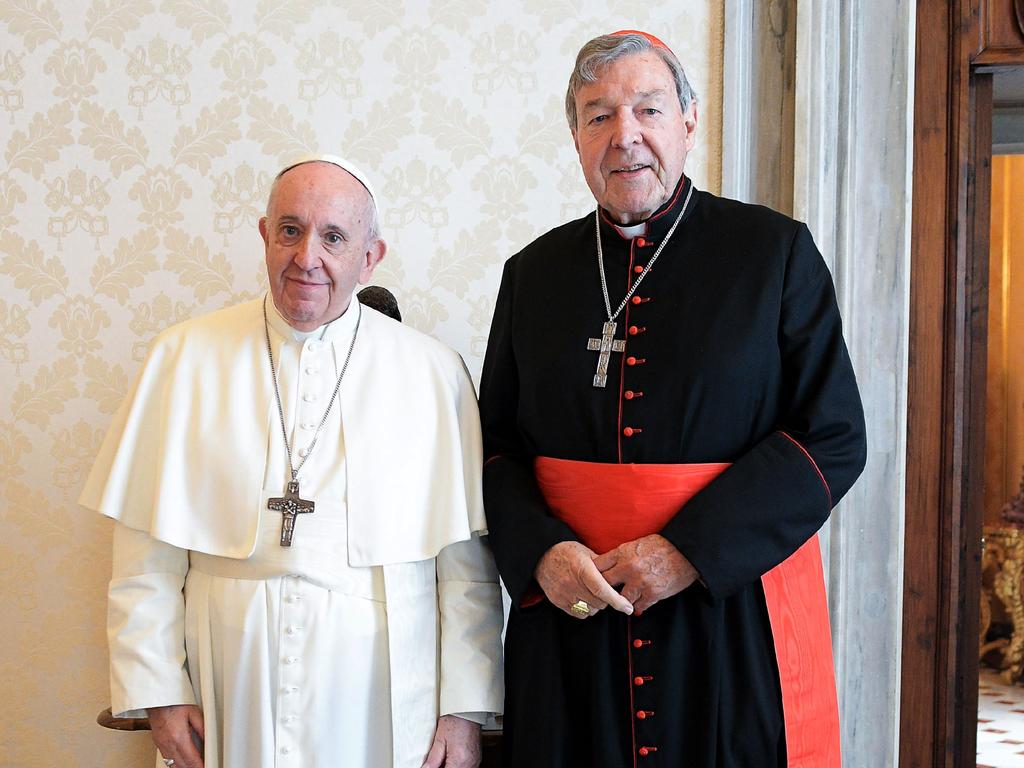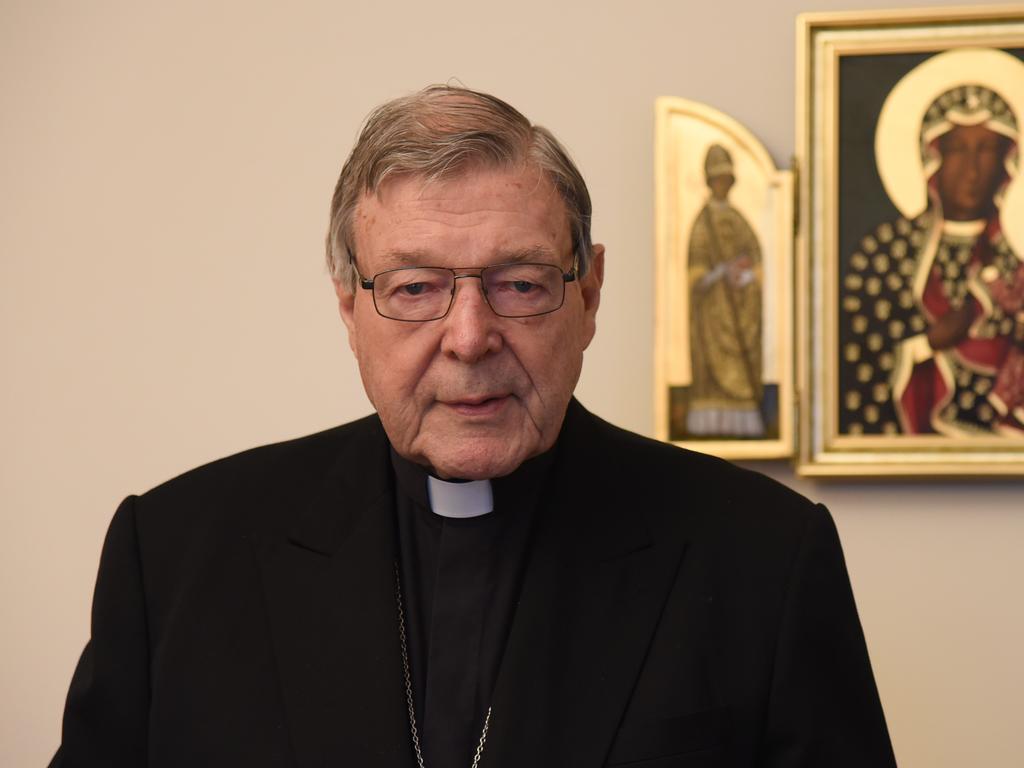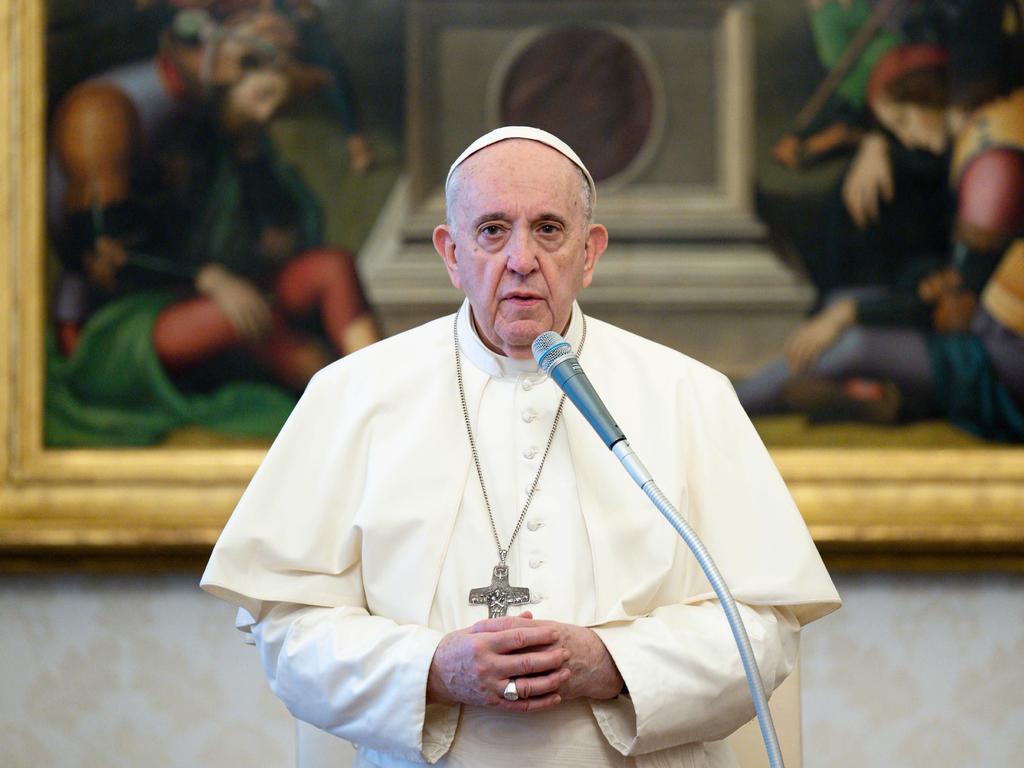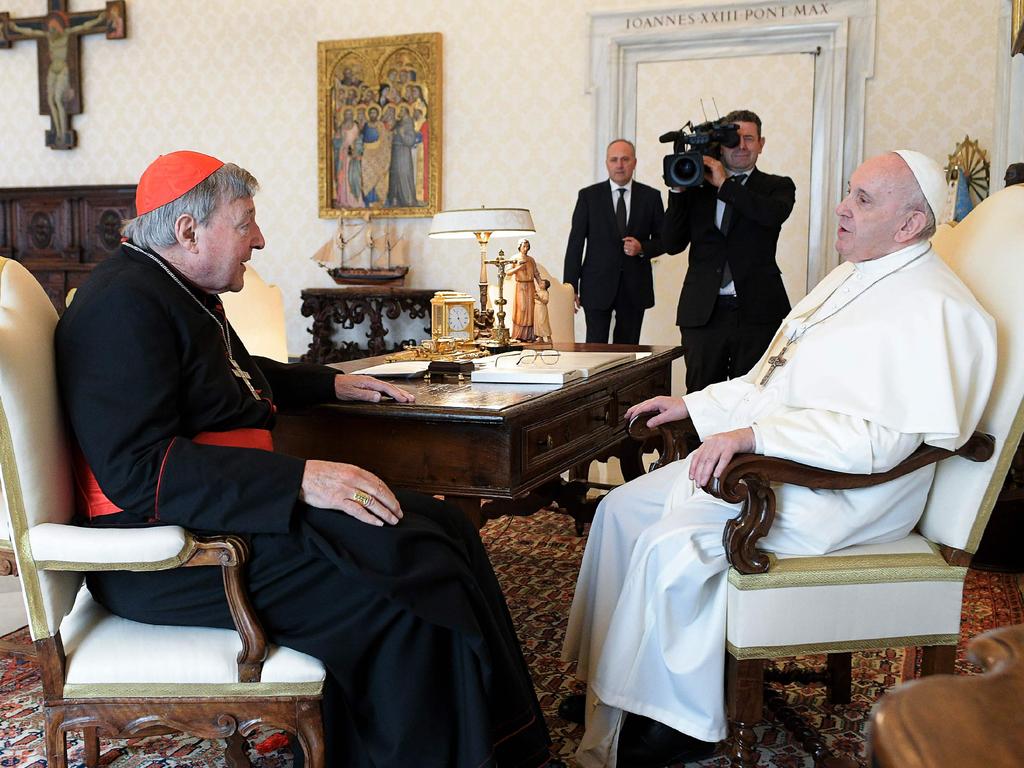How Walkley Awards jumped the gun on truth and accuracy as journalists erred in anti-Pell frenzy


Last Friday week’s annual Walkley Awards for journalism included some brilliant work, but a couple of winners — while not “fake news” — did include “alternative facts”, or omitted “inconvenient truths”.
This column has often referred to Pulitzer Prize winner Glenn Greenwald, who broke the Edward Snowden National Security Agency leaks story for The Guardian in 2014, and to Matt Taibbi, whose website publishes some of his country’s best political commentary. Both say mainstream US journalists are producing fake news about the Trump presidency and “Russiagate”.
Neither is a Trump supporter, but both are believers in fairness, balance and truth. A piece published on November 23 by another Pulitzer Prize winner and former New York Times foreign editor Chris Hedges on the Common Dreams website discusses the Greenwald and Taibbi critiques.
Hedges, like this column, finds a commercial motive for publishers now bowing to trends driven out of journalism schools: “The press … has largely given up on journalism. It has retreated into echo chambers that only speak to true believers. This catering exclusively to one demographic, which sets it against another demographic, is commercially profitable. But it also guarantees the balkanisation of the United States.”
Substitute Russia for Cardinal George Pell and the same phenomenon may be taking root here. A couple of Pell entries received Walkleys — Lucie Morris-Marr’s book Fallen and the ABC’s three-part documentary on paedophilia in the Catholic Church, Revelation.

Former Four Corners presenter Sarah Ferguson’s interviews in the first two parts of Revelation are compelling. She speaks to convicted paedophile priest Father Vincent Ryan and convicted St John of God Brother Bernard McGrath. Ferguson tries to understand the motives of the abusers and effectively portrays the damaging, sometimes fatal, effects of their crimes on victims and their families. It’s harrowing stuff, and would have won best documentary just on parts one and two.
Episode three is more problematic. It had to be removed from ABC iview and re-edited after the High Court on April 7 this year in a 7-0 judgment overturned the conviction of then Melbourne Archbishop Pell for raping two altar boys after mass in late 1996 at Melbourne St Patrick’s Cathedral.
It’s a pity Ferguson could not resist the journalistic pull of the Pell case, which has generated a publishing boom with four books and more on the way. Melbourne ABC journalist Louise Milligan won a Walkley Book of the Year in 2017 for Cardinal, and two Melbourne Press Club Quills for reports on the Pell matter on 7.30.


But Cardinal had also cost Melbourne University Press CEO Louise Adler her job. All charges arising from alleged events in Milligan’s book and her ABC reports have failed — either dropped by the Victorian DPP, thrown out by magistrates at committal or overturned on appeal in the St Patrick’s matters.
It can be no coincidence the final episode of Revelation was timed to air the night after the High Court decision in Pell’s favour. As Australia’s most senior conservative cleric, Pell was an irresistible target.
Yet the ABC should have expected the High Court result. Justice Mark Weinberg’s lengthy dissenting minority judgment in the August 21, 2019, Victorian Court of Appeal finding against Pell should have alerted the ABC to the danger of placing too much credence in criminal matters on appearances of witness credibility.
Ferguson told ABC radio’s Richard Glover on March 31 that her source for episode three, “Bernie”, was a credible witness. In fact Bernie’s evidence was not new, and some of his “facts” about Pell were wrong. Weinberg’s treatise on witness credibility was written as a virtual road map for a High Court appeal, and that court’s judgment is substantially built on observations about witnesses by Weinberg, one of the nation’s most experienced criminal lawyers.

Morris-Marr’s Fallen is even more problematic. It was certainly worth publishing and remains worth reading. It’s just that events overtook it.
The power of the High Court’s repudiation of the Pell case undermines the underlying sentiments that inform Fallen: that Pell is indeed guilty, his media defenders are rogues, high-profile people who gave character references for him had conflicts of interest and people such as Father Frank Brennan in this newspaper were wrong to criticise the original verdict and the Victorian Court of Appeal decision.
That Court of Appeal majority decision found the original jury had acted reasonably in believing the sole witness against Pell. But the court’s majority, Chief Justice Anne Ferguson and Justice Chris Maxwell, had little criminal law experience and, according to the High Court, should not have placed so much emphasis on appearances of credibility, or disregarded the testimony of the “opportunity witnesses” who told the trial the alleged offence could not have happened.
Morris-Marr’s personal observations may have seemed fine at the time of writing but are odd in light of the High Court’s ruling. Many journalists she criticises have been proven correct about the Pell charges. Here’s the rub for the Walkley judges. Fallen was published in September 2019, but Walkley 2020 nominations did not open until July 1, 2020, three months after the High Court decision.
Both Fallen and the third episode of Revelation — before re-editing — are presented without the full facts: the High Court ruling. They are like halftime match reports without a full-time score.

Walkley judges board chair Lenore Taylor, editor-in-chief of Guardian Australia, should have stepped in. The MEAA would not comment on specifics but offered this column a general statement of judging principles.
That is not good enough. A Walkley is the profession’s endorsement of a story. And Taylor also publishes the work of another Pell trial author and critic Melissa Davey. Guardian Australia has been Pell’s fiercest media critic.
In Melbourne journalism circles, many believe Morris-Marr’s award was a square-up. They say Morris-Marr should have won Scoop of the Year for first reporting Victoria Police were to charge Pell in the Herald-Sun in 2016. Milligan won for Cardinal.
It’s not just Pell stories that raise questions about the profession’s attitude to journalism’s traditions. Guardian Australia won in 2018 for its Deaths Inside database revealing 407 Australian Aboriginals had died in custody since the 1991 Deaths In Custody Royal Commission.
Yet many of them actually died of natural causes in prison, some in police car chases and some committed suicide.
The Walkley board last year gave a gong to Al Jazeera’s “How to sell a Massacre” — a three-year sting against One Nation that used actors and hidden cameras and microphones. The journalists’ code of ethics says reporters must “use fair, responsible and honest means to obtain material. Identify yourself and your employer before obtaining any interview for publication or broadcast.”







Is Australian journalism following the US down the road of political activism over truth and accuracy?